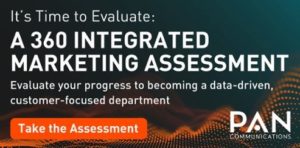The second half of 2017 is underway, meaning it’s the perfect time to assess your mid-year marketing and PR programs. As part of that assessment, you might be considering partnering with an integrated marketing and PR agency for the first time, or making the switch from your current agency to a new one. Whichever camp you’re in, this is a major decision.
A number of criteria will likely factor into your ultimate decision — such as an agency’s experience and expertise in your industry and key verticals; relationships with relevant media and influencers; approach to client engagement; chemistry with your team; ability to implement and measure the success of creative campaigns; among others.
But before choosing an agency, here are three key questions you should know the answer to:
1. What are you trying to accomplish?
Having a clear sense of your goals and what you’re working toward is critical. Not just your marketing and PR goals, but your overarching business objectives, as well. For example, are you looking to raise awareness among potential customers, partners and investors to grow your business and secure additional capital? Are you preparing to be acquired or go public in the next 18 months? Are you planning to enter a new region and expand internationally?
What your emerging-growth or mid-market business is trying to accomplish will serve as the foundation and compass for your marketing and PR programs — so taking the time to define this will only help you, and your agency, in the long run. Of equal importance is ultimately partnering with a nimble and flexible agency that can not only move at the same speed as you but also adapt to your evolving business goals and needs over time.
2. What is the story you’re trying to tell?
It might sound simple, but understanding your story is just as important as understanding what you’re trying to accomplish. Why? Because your story will similarly influence every aspect of your marketing and PR programs.
Take content, for example. What content should be created around your brand’s story to help customers and prospects at various stages of the sales process? How should your content communicate your story in a unique way that resonates with your target audiences? On which channels — media, social, etc. — should your content be shared to reach those audiences?
With your story defined, it’s important that the agency you choose to partner with tells that story via an integrated marketing and PR approach. This way, you can connect with your core audiences across an omni-channel experience — creating long-term brand equity and visibility, and moving leads through the funnel.
3. What are your metrics for measuring success?
Once you’ve mapped out your business goals and the story you want to tell about your brand, you’ll be well-positioned to determine what success should look like. This includes identifying your metrics for measuring success.
When it comes to integrated marketing and PR, programs are most successful when they’re based in measurable data — metrics that can later inform campaigns and messaging, and to come full circle, map back to business goals.
As you answer these questions and assess your mid-year marketing and PR programs, please feel free to continue the conversation with me at jvernon@pancomm.com or @JPV8.
Also, check out our annual Content Fitness Report — we asked 100+ marketers about the “health” of their content marketing programs, and recapped the challenges, trends and overall health of content marketing.




